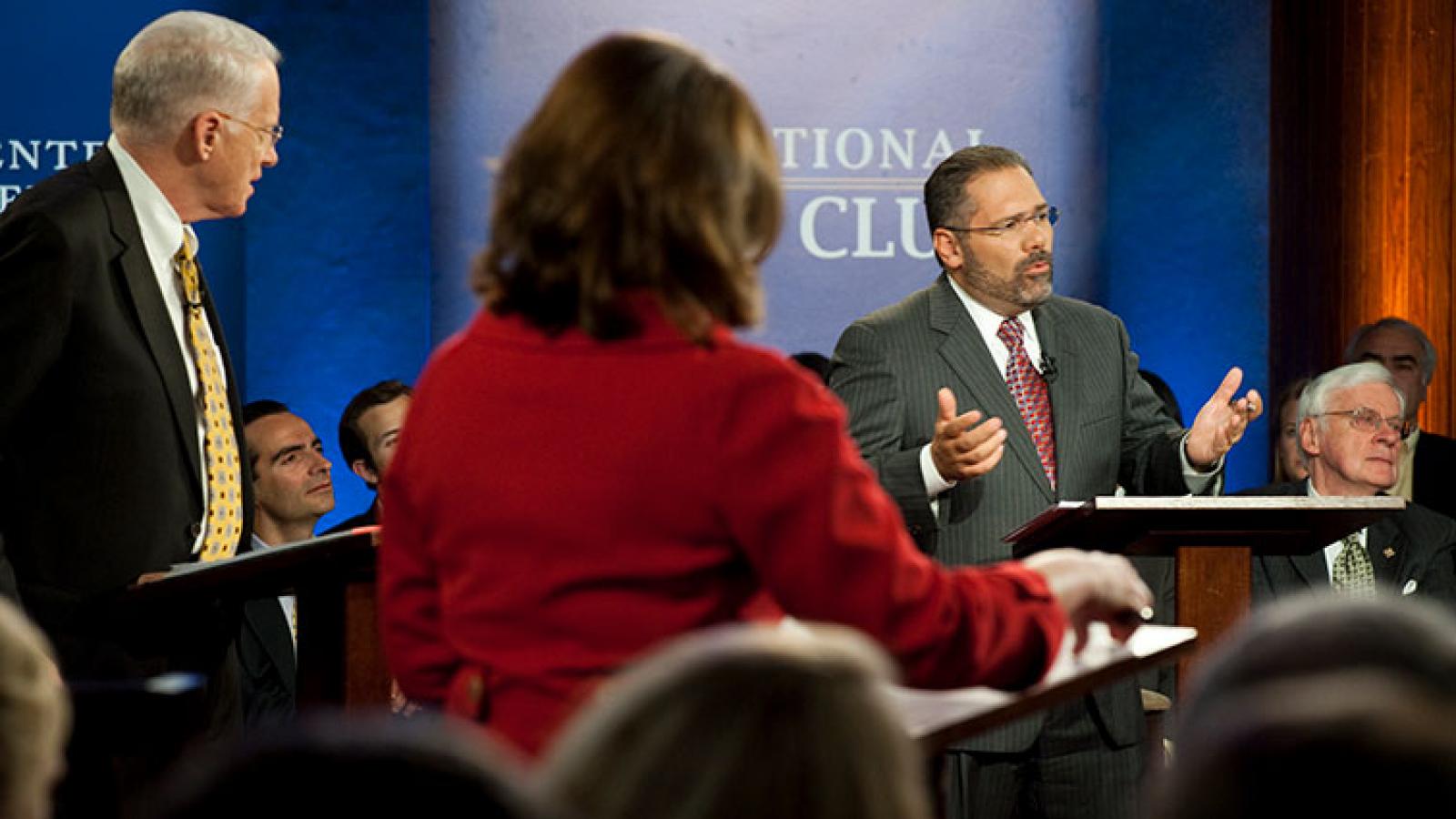Cost of Higher Education: National Discussion and Debate Series
Since the mid-1980s, the costs of higher education in America have steadily shifted from the taxpayer to the student and family. As state funding has dwindled, colleges and universities have sought to fill these gaps through a variety of avenues, including philanthropy and research support, but the area of highest growth has been tuition. The share of institutional budgets provided by tuition increased from 22% in 1985 to 36% in 2005. As state budgets slip further into structural deficit, there is no reason to think this trend will reverse itself.
Resolved: The business model of higher education is broken
Arguing for the resolution:
William E. Kirwan, Chancellor of the University System of Maryland, is a nationally recognized authority on critical issues shaping the higher education landscape. He served as President of Ohio State University from 1998 to 2002, and President of the University of Maryland, College Park from 1988 to 1998. Prior to his presidency, he was a member of the University of Maryland faculty for 24 years. Kirwan chairs the College Board's Commission on Access, Admissions, and Success in Higher Education.
Gail O. Mellow is President of LaGuardia Community College in Long Island City, Queens. She is a nationally recognized expert on the history, development and future of the American community college. She is the co-author of Minding the Dream: The Process and Practice of the American Community College (2008). Mellow serves as a commissioner on the Business Roundtable's Springboard Project, which offers recommendations to strengthen the American workforce by highlighting the important role of community colleges.
Arguing against the resolution:
Richard C. Levin, Frederick William Beinecke Professor of Economics, has been President of Yale University since 1993. Before becoming President, he chaired the Economics Department and served as Dean of Yale's Graduate School of Arts and Sciences. Levin is recognized as an advocate and leader of the emerging role of higher education in responding to the challenge of sustainable development locally and globally. He serves on the President's Council of Advisors for Science and Technology.
Daniel Hamburger is President and Chief Executive Officer of DeVry Inc., a publicly held, global provider of educational services. He joined DeVry in 2002 as Executive Vice President, responsible for DeVry's online operations and Becker Professional Review. He was named President and Chief Operating Officer in 2004 and Chief Executive Officer in 2006.
Moderator:
Ray Suarez has been a Senior Correspondent for the PBS NewsHour since 1999. His most recent book is The Holy Vote, examining the relationship between religion and politics in America, and his work has appeared in the New York Times,Washington Post, and Chicago Tribune. A former host of NPR's Talk of the Nation, Suarez has worked for CNN, ABC Radio Network, and CBS Radio. Suarez hosts the monthly public radio foreign affairs series America Abroad for PRI, and is narrator of RadioWorks, the documentary unit of American Public Media.
